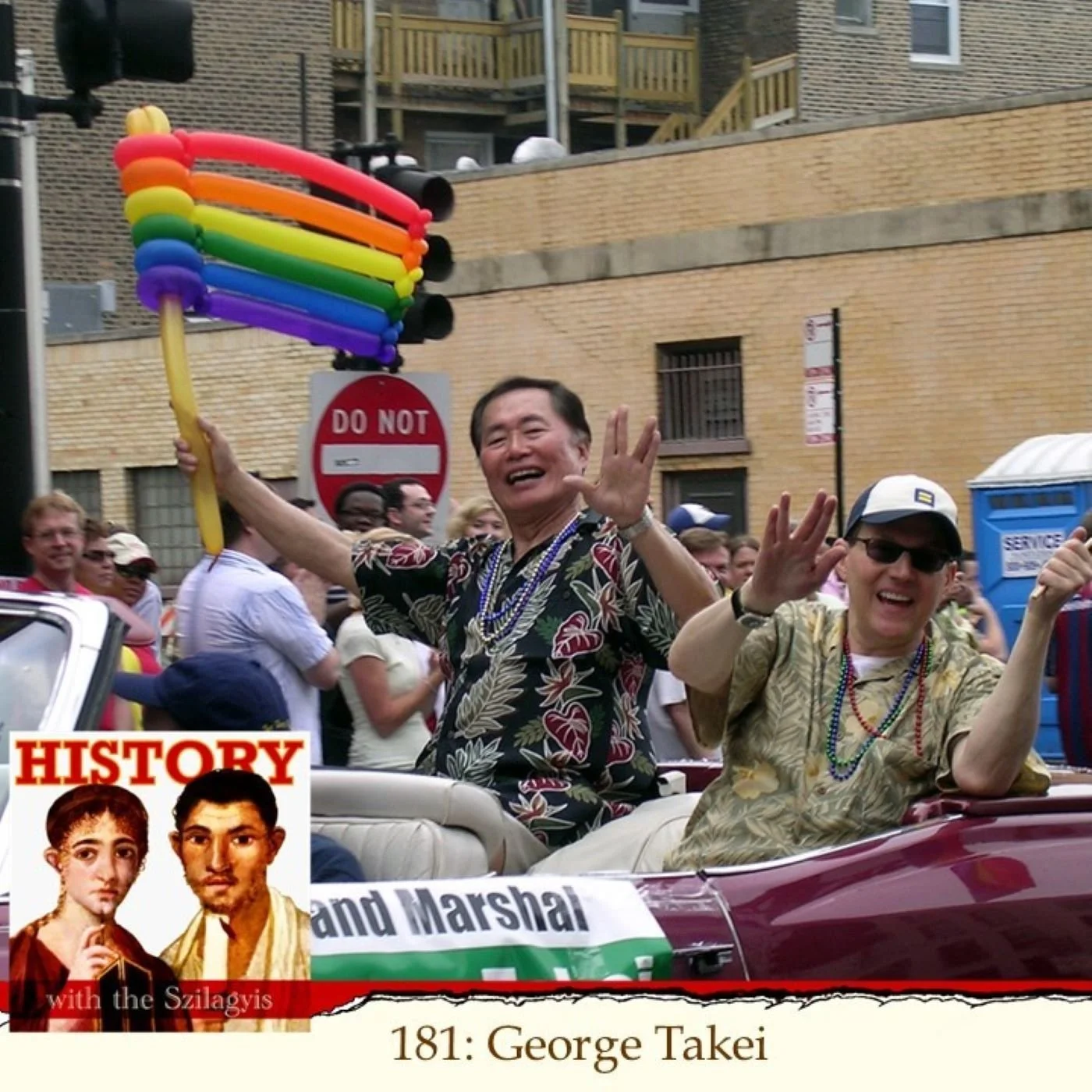George Takei
-Chrissie
Listen here: https://www.spreaker.com/user/bqn1/hwts181
George Takei is best known-for his role as Hikaru Sulu on Star Trek, a position which allowed him a platform to advocate for two issues of great import: educating about the Japanese Internment during World War II and LGBTQIA+ rights.
Takei was born on 20 April 1937 in Los Angeles. His father was an immigrant from Japan and his mother was first-generation Japanese-American. When young George was only five years old, the family was forced out of their home by solders under Executive Order 9066, which authorized the forcible removal of anyone deemed a threat to national security along the West Coast. They were told it was a temporary relocation, and some were even told it was for their own safety, in case people decided to act retribution upon them over the bombing of Pearl Harbor. They could bring only one suitcase each and lost all of their possessions and money. The Takeis were housed in a barely-converted stable in the Rohwer War Relocation Center in Arkansas, then moved to the Tule Lake War Relocation Center in California. Approximately 112,000 people were interred under this order, 70,000 of whom were, like young George, his siblings, and his mother, American-born citizens. At the end of the war, the Takeis, like all those interred, were given a small amount of money and sent on their way, with no support and no compensation for their lost money or property. Four decades later, survivors were granted redress payments accompanied by a letter of apology from the United States Government, but nothing could make up for the personal costs. The family spent five years after their release living in a tenement on Skid Row in Los Angeles. They were eventually able to somewhat re-establish themselves, but could never fully recover from their ordeal.
Takei began college with the intent to become an architect but changed his major to theater. He earned both a bachelor’s and master’s degree from UCLA, then studied at the Shakespeare Institute. His early career included minor parts alongside some of the major celebrities of the day, as well as doing voiceovers and dubbing for Japanese films, including the kaiju classic Godzilla Raids Again. Even after he was cast in Star Trek, he was pulled away to act alongside John Wayne in The Green Berets. When Trek was cancelled in 1969, he, just like everyone else, went on to other work, having no concept that the show would be continued or have such cultural impact. He returned to the role of Sulu for the Animated Series and the movies, as well as an appearance on Star Trek: Voyager and, just last year, in Star Trek: Lower Decks.
In the last two decades, Takei has become a prominent voice in the LGBTQIA+ community. Though his sexuality was generally an “open secret,” he did not confirm it until 2005, when he spoke out against California governor Arnold Schwarzenegger’s veto of marriage equality legislation. He also took this opportunity to introduce his longtime partner, Brad Altman. The couple were the first to apply for a marriage license in West Hollywood once same-sex marriage was legalized in 2008 and married in September of that year. He has even lent his name to the issue in response to attempts by state governments to outlaw the discussion of homosexuality in schools, beginning with Tennessee in 2011. The legislation came to be known as “Don’t say Gay” bills, so he ran a campaign suggesting the word “gay” be replaced with the word “Takei.”
He has also used his own story to assure that people are informed about the treatment of Japanese Americans during World War II, both to acknowledge the past and to draw attention to the issues currently faced by immigrants and minority populations in the United States and around the world. He told his story in his 1991 memoir, To the Stars (which was the first time this historian learned of the Japanese Internment), and in the 2019 graphic novel They Called us Enemy. His story also served as an inspiration for the Broadway musical Allegiance, in which he also starred.
His Star Trek legacy has melded well with his advocacy work. in which he always emphasizes Gene Roddenberry’s ideas of Starship Earth and Infinite Diversity in Infinite Combinations.
